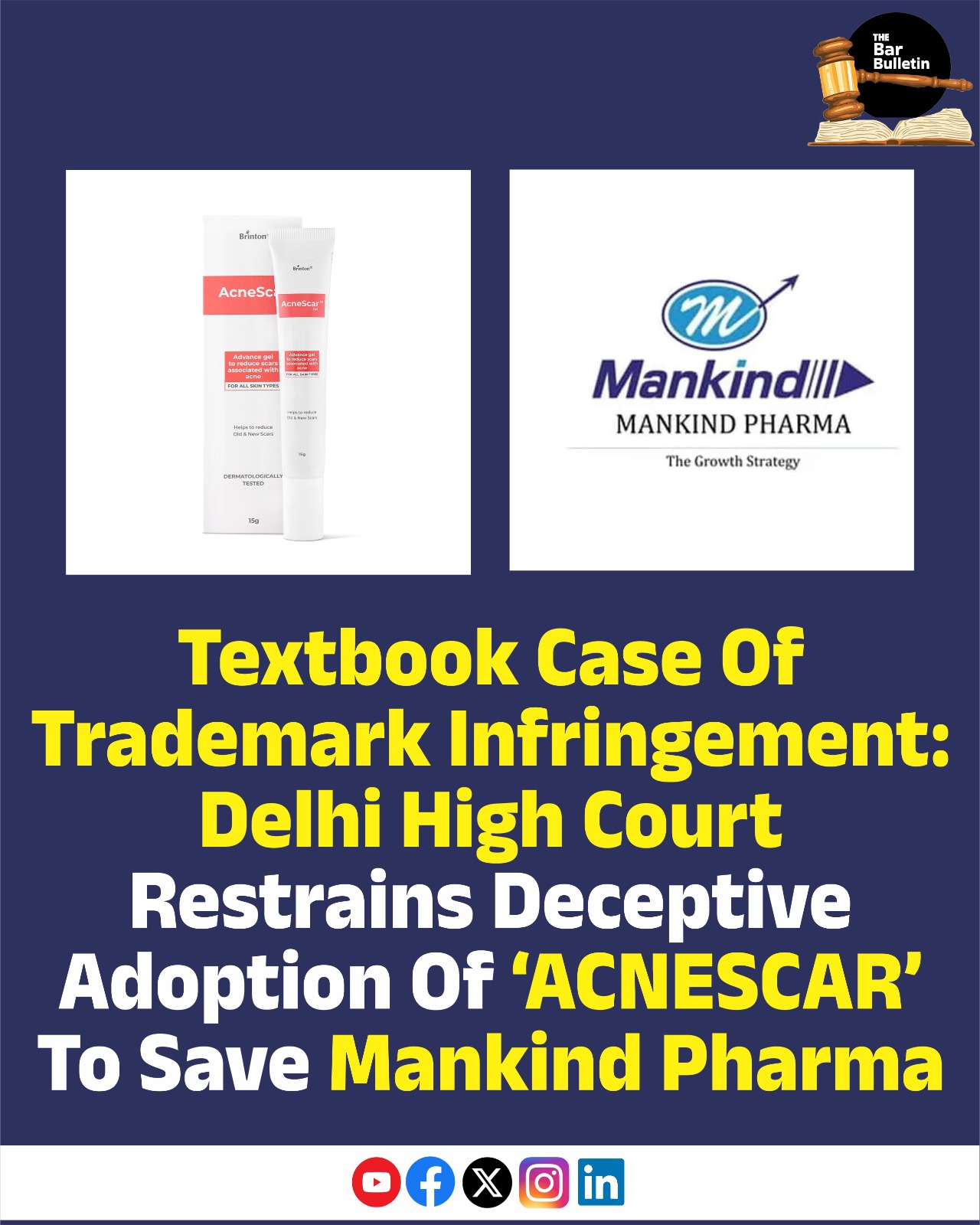The Delhi High Court granted an interim injunction in favour of Mankind Pharma, restraining Brinton Pharmaceuticals from using the mark “ACNESCAR” or any mark deceptively similar to “ACNESTAR.” The Court held that both marks were phonetically almost identical and dealt with similar skincare and medicinal products, and minor differences in spelling, price, packaging, or target use (acne vs. scars) did not eliminate the likelihood of confusion. The Court also ordered Brinton not to release or sell existing stock under that mark during the pendency of the suit.
The Division Bench comprising Justice C. Hari Shankar and Justice Om Prakash Shukla observed that in the case of pharmaceutical and medicinal goods, a higher standard of protection applies because confusion can have health implications. It found that the Commercial Court’s reasoning was legally unsound, especially since Mankind’s trademark was registered and long used, while Brinton had no valid registration.
The Bench reproduced the single paragraph of reasoning from the trial court, which had dismissed the injunction request by noting differences in price, class, and packaging, and calling it a case of ‘textbook case of trademark infringement’, emphasised that this “bare-bones” reasoning ignored the settled legal test under Section 29 of the Trademarks Act, whether an average consumer would likely be confused by similarity of marks.
The Bench also found a clear prima facie case: “ACNESCAR” and “ACNESTAR” are phonetically indistinguishable unless pronounced with deliberate care, and explained that phonetic similarity, especially in drug-related marks, is enough to create confusion and constitutes infringement. The Bench stressed that when spoken in ordinary conversation, “ACNESCAR” sounds identical to “ACNESTAR”, and the only difference, i.e., “star” vs. “scar”, is too subtle to register aurally, making the two marks nearly identical in pronunciation.
The Bench highlighted that packaging and colour schemes may be relevant in passing off cases, but in statutory infringement, the mark-to-mark comparison is decisive. Since both marks sounded identical, differences in get-up could not rescue Brinton. Applying Section 29(2)(b) of the Trade Marks Act, the Bench pointed out that the two marks are used on similar goods, in similar trade channels, and aimed at the same consumer group, which automatically establishes likelihood of confusion, satisfying the infringement test.
Briefly, in this case, the Appellant, Mankind Pharma Ltd., the registered proprietor of the trademark “ACNESTAR” (used since 2005 for acne treatment creams and face washes), had filed a suit alleging trademark infringement and passing off against Brinton Pharmaceuticals Ltd., which was marketing a skin-care cream under the mark “ACNESCAR.” Mankind argued that the rival mark was deceptively similar phonetically and visually and was being used for closely related products targeting acne-related conditions, likely to confuse consumers. The Commercial Court, however, refused to grant an interim injunction, holding that the products were different in price, function, and packaging.
Appearances:
Senior Advocate Amit Sibal, along with Advocates Hemant Daswani, Saumya Bajpai, Pranjal, Ankit Handa, and Suditi Batra, for the Appellant
Advocate Rahul Vidhani, for the Respondent



